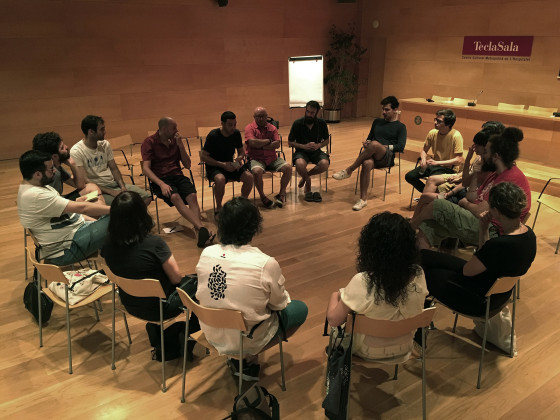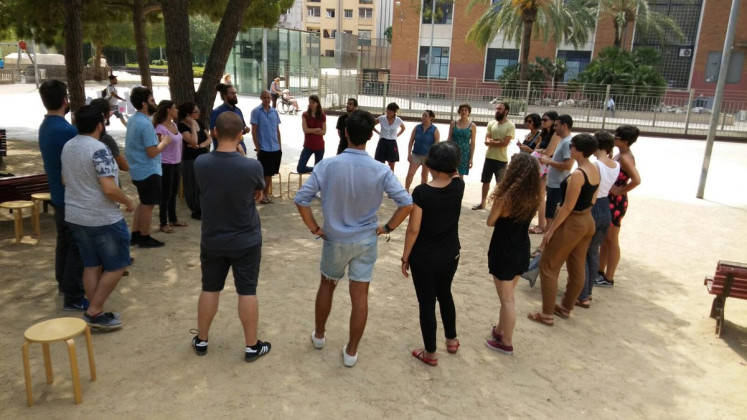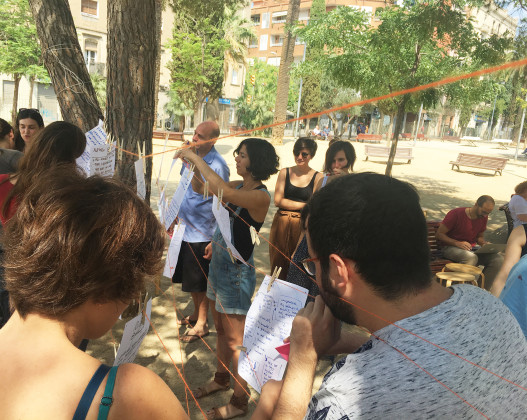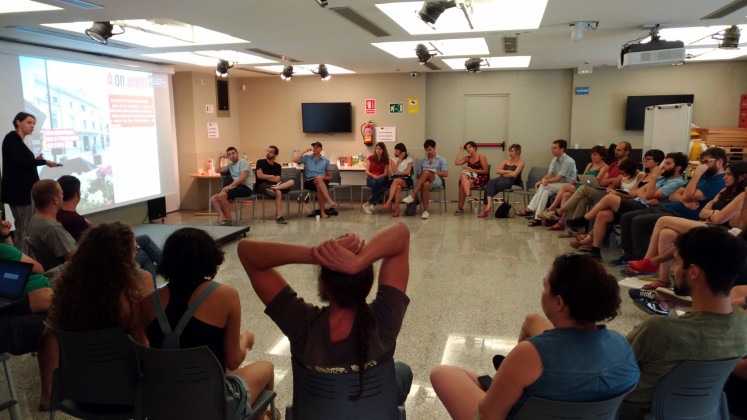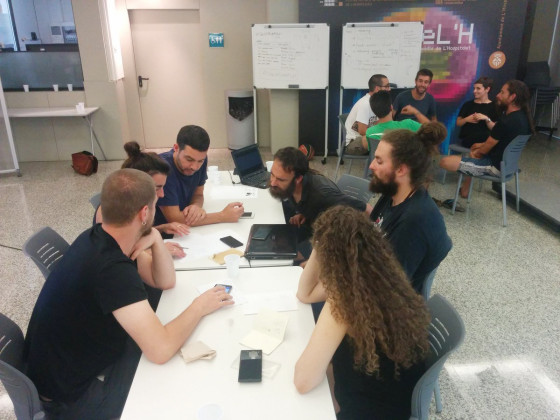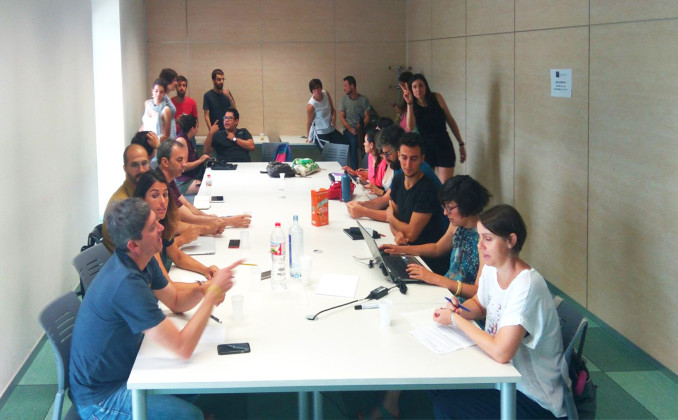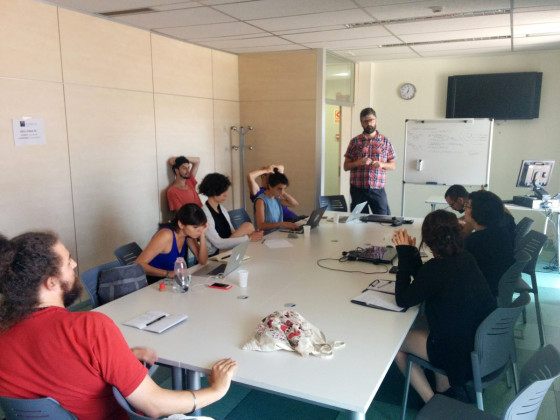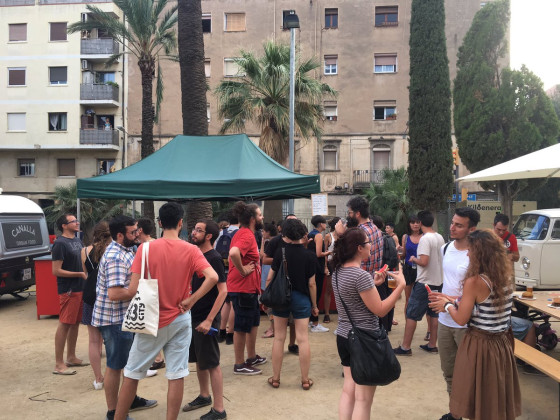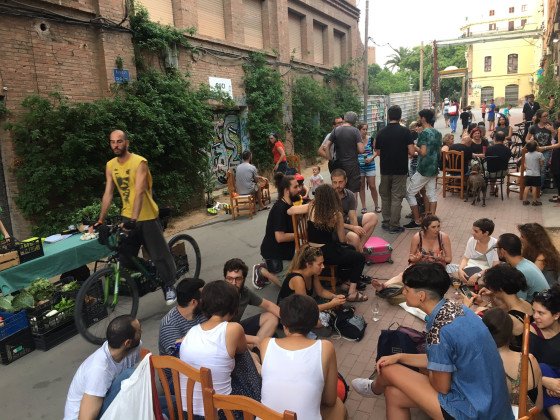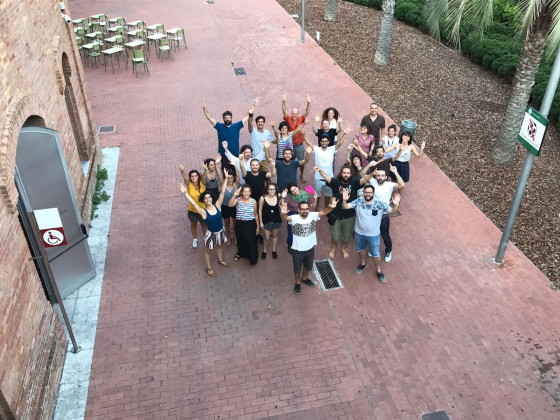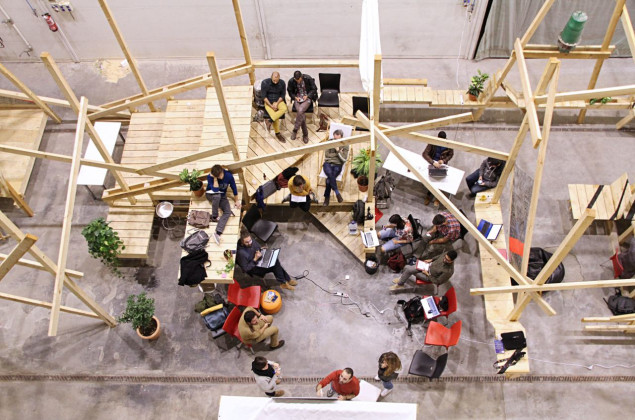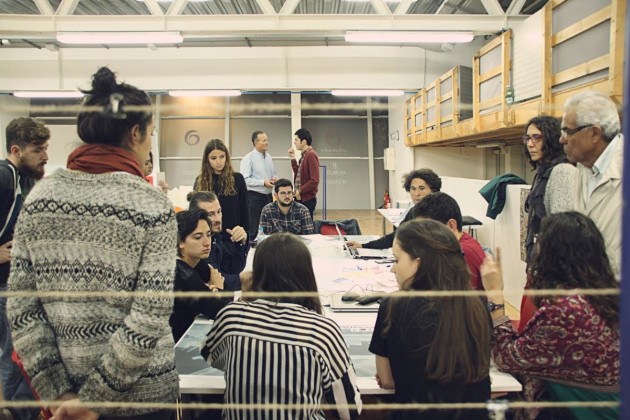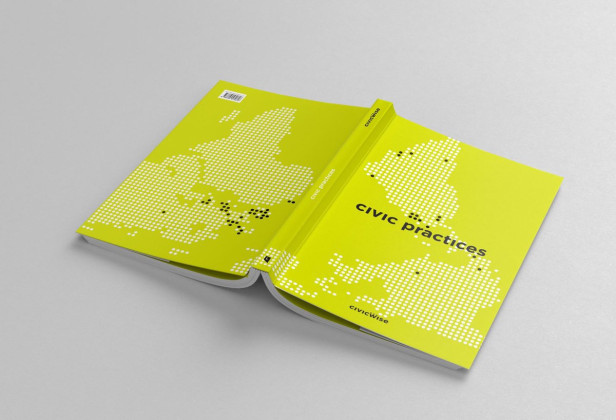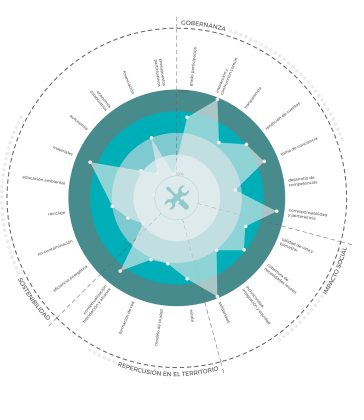Glocal Camp 2017: Means and Ends
Civicwise, an international network working on civic design gathered together at Glocal Camp in L’Hospitalet, Spain between July 8-15 to discuss the community governance, collaborative economy, and inclusive communication
“Means should look like ends: one cannot fantasize that the struggle for an egalitarian society of sharing may win by adopting forms of inequality and enclosure.”
Stavros Stavrides, Common Space: The City as Commons
This year, the days between July 8th and July 15th were reserved for exactly that kind of means. Glocal Camp of Civicwise, held in L’Hospitalet -a city in Barcelona’s metropolitan region- was an intense week of brainstorming workshops, as well building and strengthening relationships and collaborations. Tecla Sala and Torre Barrina, the venues where the event took place, were provided by the municipality of L’Hospitalet, which is currently working towards a partnership with Civicwise for their Cultural District project. But to talk about Glocal Camp, one has to talk about Civicwise; the camp is a gathering event of Civicwisers, who collaborate on a range of projects over time via online platforms such as Google Hangouts, Slack or Discourse before meeting up once or twice every year.
“Civicwise is an international distributed and open network that promotes citizen engagement, while developing concrete actions and projects based on collective intelligence, civic innovation and open design.” Founded in 2014, Civicwise is a young and dynamic network where the community is seeking an alternative to existing models of collaborations. The main focus is to generate participation from different parties; mainly citizens, but also local authorities, universities and professionals in the decision-making processes of territory production. And this is mainly done through members of the local circles, who collaborate with people in the global network of Civicwise. In this way the name of the camp “Glocal” makes more sense, because this camp is a pendulum between the local circles (located in 18 cities all around the world like Barcelona, Valencia, Paris, London, Milan, Amsterdam, Canary Islands, etc) and the global community.
My first encounter with Civicwise was through a friend’s Facebook post which mentioned their recently published book Civic Practices. After diving into the book, which consists of stories of spatial interventions through civic initiations, I checked the website, and noticed the open registration for Glocal Camp. I thought it would be a weekly series of workshops on civic design. Well, why not? The tutors were not mentioned, and the program was not on the website. But ok, we’ll see. Then I found myself in Barcelona.
First things first, let’s go back to “means should look like ends” statement and define the governance of Civicwise. The way the community works is related not only to the vision of Civicwise, but also to the methodology of each and every project. A collective intelligence is sought after, rather than a democratic process of assembly. This means that people who are in different lines of thought does not have to try and convince one other through voting or anything else of that sort, but rather come to a collaborative agreement through discussions. Of course this takes longer than the democratic process, but it is also a more productive, open and unexpected way that leads to powerful ideas. The most important ingredient of this process is the trust. During the workshops, I have been asking questions on the misuse of the system; I have made up a substantial number of examples in which people in the community might really ruin it. In answer to my concerns, I have been told that the community is built on trust, and that this is the main thing that would prevent any kind of a misuse. Moreover, everyone in the community is free to start anything under the umbrella of Civicwise, and nobody is obliged to participate in anything unless they want to. This is an almost anarchist system where the contemporary dichotomy between the individual and community disappears. As Jacques Rancière put it in his speech at B-Fest: “The very opposition of community to individualism is pointless. A form of community is always a form of individuality at the same time.” So, in this way, Civicwise proposes an alternative to the existing system; not in terms of what it delivers as projects, but also in terms of how it internally operates.
So, what are the projects of Civicwise like? It can be cooperative housing, a regeneration of an urban space, or a digital tool to make citizen participation possible and productive. These are realized through initiation of the project by someone in the local circles, and forming a workgroup of coordinators, collaborators and participants. Through this process the “client” -mostly a community organisation or a local authority or the participants of a crowdfunding campaign- becomes one of the partners of the project, and develops it together with Civicwisers. This protocol, like many others for the operating system of Civicwise, was itself questioned in the series of workshops during Glocal Camp.
Rather than working on the already existing projects that are being developed by the community, the Glocal Camp was designed to design the community itself. So the leading questions were evolving around the main values of Civicwise; values like openness, transparency, inclusivity, independency, etc. And fortunately this community is comprised of people from different disciplines such as economy, law, urbanism, graphic and service design, and architecture. This diversity in disciplines, and the almost agreed upon vision about civic design, provide a wide range of in-depth discussions. Some of the questions brought up during the workshops were really interesting. How can we be anonymous? What can be the legal structure of Civicwise? How can we become a better distributed network? How do we welcome new members? In which ways can we develop and finance our internal projects? How can we produce a collaborative, open and transparent economy, locally and globally? How can we make the less visible, but as important contributions within the community more recognisable and value them more? The main idea behind the workshops was to put forward these questions and develop the answers in time, rather than strictly taking decisions and proceeding accordingly. In this way, some priorities are defined, and these priorities will be discussed further via online platforms or someone will perhaps just take the lead in starting something which will then grow with the collaboration of the community.
A week of intense discussions, brainstorming sessions, flow of ideas, drinking and chatting with a group of 30-40 people was probably the most appropriate way to be in sync with such a well distributed community; and the best way for a newcomer like me to get to know what Civicwise really is. My initial concerns on the openness of the community, the practicality of decision making processes, or the sustainability of such a distributed network, were all gone at the end of the week. Not playing by the book or the norms of the existing system, Civicwise is developing new means to emerge as a real alternative.
Related Content:
-
Knowledge Transfer By Co-design
Hulya Ertas in conversation with Cristi Borcan of studioBASAR on the potentials of urban commons and co-design processes with communities in the specific context of Bucharest.
-

Energy Self-Sufficiency for Public Activation
-
Life as Commons
Stavros Stavrides demonstrates how the emergent practices of commoning are responding to coronavirus pandemic with collectivity, cooperation and solidarity.
-
Urban Development through the Culture of Volunteering
Bilgen Coşkun and Dilek Öztürk talked with sociologist and Living Cities member Jennie Björstad, about social inclusion, “yes culture” and the role volunteers for urban development.
-
Participatory Dialogues for Urban Design
Bilgen Coşkun and Dilek Öztürk talked with architects and urban planners Christelle Lahoud, Pontus Westerberg and Klas Groth from UN-Habitat about designing smart cities through participatory planning approaches.
-

Glocal Camp Modena
-
Social Design for Beginners
Curated by Angeli Sachs, Social Design exhibition in the Museum for Gestaltung Zurich aims to discuss implications of growth economy on human beings, environment and design. Banu Çiçek Tülü reviewed the exhibition as a good example of inclusiveness in a country where democratic design processes emerge in urban scale.
-
Learning From Change
In conversation with Jan Boelen, the curator of 4th Istanbul Design Biennial on the theme of "A School of Schools." We discussed a variety of issues starting from the making of a design biennial up to design's capacity to respond to changes in the society.
 27.07.2017
27.07.2017



